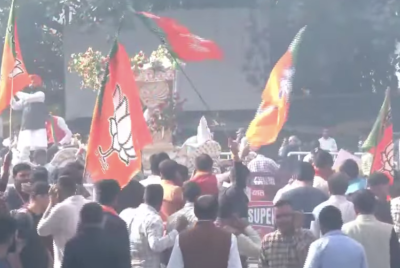Iraq War Inquiry: Sir John Chilcot faces grilling from MPs over delayed report
Sir John Chilcot will face a grilling from MPs today after criticisms of delays to his much awaited report into the 2003 Iraq War.
The inquiry was opened in 2009 and was expected to report its findings three years ago, but it is now expected after the general election.
The investigation looked into the invasion of Iraq in 2003 and interviewed former prime ministers Tony Blair and Gordon Brown as well as military commanders and diplomats.
Chilcot will appear before the Foreign Affairs Committee to explain to MPs the "obstacles which remain".
He warned the prime minister earlier in year that there is "no realistic prospect" of the report before polling day.
Chilcot also told David Cameron that agreement had been reached on the publication of details from notes and conversations between Tony Blair and George Bush.
The Tory leader, in a reply to Chilcot, said he wanted the investigation to be published "well before" the general election.
"The Iraq War, the lead up to it and its aftermath were hugely important events in this country's recent history," he said.
"It is very important that your inquiry sets out comprehensively for the British people what happened, and why, so that all the lessons can be learnt."
Cameron added: "However, it is important that the inquiry remains full independent of government and therefore the timetable and processes for completing you work are entirely for you to decide – not government."
"So I have to respect your decision and fully accept that it will not now be possible for you to submit your final report to the government and parliament until after the election."
"Had the previous government established this inquiry when I first called for it we would not be in this position today."
Chilcot explained that he would not say anything about the substance of the inquiry's work when he is being quizzed by MPs.
"It would be inappropriate for him to anticipate the inquiry's ultimate findings, particularly because any conclusions he and his colleagues may have reached are necessarily provisional at this stage," a statement on inquiry's website read.
"My colleagues and I have served as members of this Inquiry longer than any of us expected would be necessary," Chilcot said.
"But the inquiry has been given the task of examining all of the significant aspects of the UK's involvement in Iraq over a period of nine years.
"The issues the Inquiry is considering are complex and controversial.
"To ensure that the conclusions we reach are well-founded it is essential that our approach should be rigorous and comprehensive.
"We are conscious of our responsibility – to the public and to all those whose lives have been deeply affected by the events we are examining – to discharge our duty thoroughly, impartially and fairly."
© Copyright IBTimes 2025. All rights reserved.




















